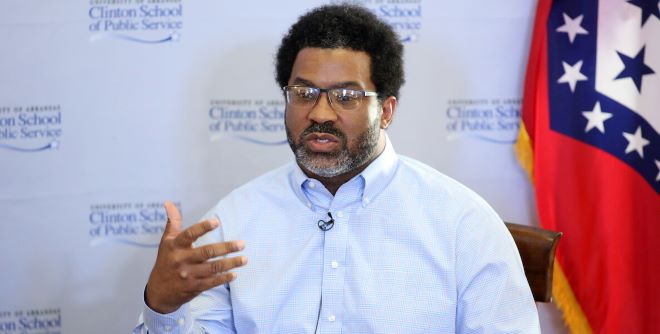On the other side of the Commonwealth, where the Allegheny and the Monongahela combine to create the Ohio River, The Pittsburgh Promise is an effort to strengthen the stream of local young people accessing and graduating from college and other post-secondary education. By meeting GPA and attendance requirements, graduates of Pittsburgh public and public charter high schools can receive $20,000 scholarships for college, trade or technical schools.
It’s an idea that has taken root in other places: There are some 200 promise programs in 41 states, according to research from the Brookings Institution. Inspired by the experience of The Kalamazoo Promise in Michigan, these programs seek to reduce financial barriers to attendance and burdens of completing post-secondary education. While not a panacea, these programs, especially the Kalamazoo iteration, have made positive impacts.
I cannot help but wonder what would be possible if we applied this same strategy to the challenge of getting more Black young people, and more young people overall, into teaching.
Philly Black Educators Promise
At the Center for Black Educator Development, the organization I founded and lead, we have deployed similar strategies and are seeing similarly promising results.
Our Teaching Academy offers high school courses for Black students to explore their interests in becoming educators. They can then apply to become part of our Black Teacher Pipeline Fellowship — a fellowship that includes a last-dollar scholarship program for education majors that, upon the student’s college graduation and return to their city to teach, provides cash stipends after the first years of teaching in partnership with the United Negro College Fund.
Getting more Philadelphia high school graduates into the teaching profession can power a whole generation of teachers for our schools.
Thus far, we have raised and invested millions of dollars for our Future Black Teachers of Excellence Fund to support this fellowship, but we need help to expand on the almost 60 Future Black Teachers of Excellence we will have this year.
We often talk about long-term investments in our city’s infrastructure — transportation, power, and so on — and so we should also be talking about long-term investments in our city’s educational infrastructure. Committing to a broader effort, call it the Philly Black Educators Promise, that would reduce or eliminate the financial burden of going to college to become a teacher could have a transformative effect on our city’s public schools, schools in the region, and potentially well beyond.
Here’s how.
Getting Black teachers into Philadelphia classrooms
Right now, schools in Philadelphia and across Pennsylvania are facing a combination of misalignment and shortage in teacher preparation. We say misalignment because our schools of education are too often graduating teachers who, by and large, are not fully prepared to teach the students who attend our public schools. A large majority — more than six in 10 — of PA teacher prep grads say they feel unprepared to teach in classrooms where Black and Brown students are the majority.
Getting more Black and Brown teachers into classrooms has huge benefits from higher graduation rates, lower dropout rates, fewer disciplinary issues, a more positive view of schooling, and higher test scores. But just 7 percent of America’s teachers are Black, and less than 2 percent identify as Black men. Getting more Philadelphia high school graduates into the teaching profession can power a whole generation of teachers for our schools, teachers with the skills, knowledge, and cultural competency to effectively educate all of our children, especially the Black and Brown students who comprise a super-majority of our public school students.
We say that there are teacher shortages because, well, there are shortages of teachers. A recent study by Teach Plus and the National Center on Education and the Economy under the #PANeedsTeachers banner found that the state’s supply of teachers has “plummeted by two-thirds over the past decade,” with particularly acute shortages in low-income, urban and rural districts. It’s rightly been called a crisis.
Among the recommendations that the report makes is to “expand pathways into teaching for youth and paraprofessionals” and to “improve the financial value for becoming a teacher.” A program like the proposed Philly Educators Promise could combine two of these policy strategies by both more effectively recruiting qualified high school students into teacher preparation and at the same time reducing the financial burden of that preparation.
What’s more, it can permit more students to stay in the communities that they know and love — communities that need the power and promise of talented young people more than ever. We can show that you don’t have to move out to move up — that you can build a career, build up your community, and build the academic success of local young people all at the same time. That’s a clear win-win.
The city likely can’t do this alone. We’ll need philanthropy, both local and national to chip in — but it’s, again, an investment in our future as a city and a region. The returns of more young people staying and building their lives here, the returns of those young people being less financially strapped upon graduation, would be manifold.
So yes, invest in transportation and greener spaces. By all means, invest in cleaner energy, and in reducing poverty for our city. But let’s also think about how we are investing in the long-term infrastructure of our schools and young people.
Sharif El-Mekki is the founder and CEO of The Center for Black Educator Development. Read more of El-Mekki’s work on his blog, Philly’s7thWard.org.
The Citizen welcomes guest commentary from community members who stipulate to the best of their ability that it is fact-based and non-defamatory.
![]() MORE FROM SHARIF EL-MEKKI
MORE FROM SHARIF EL-MEKKI



